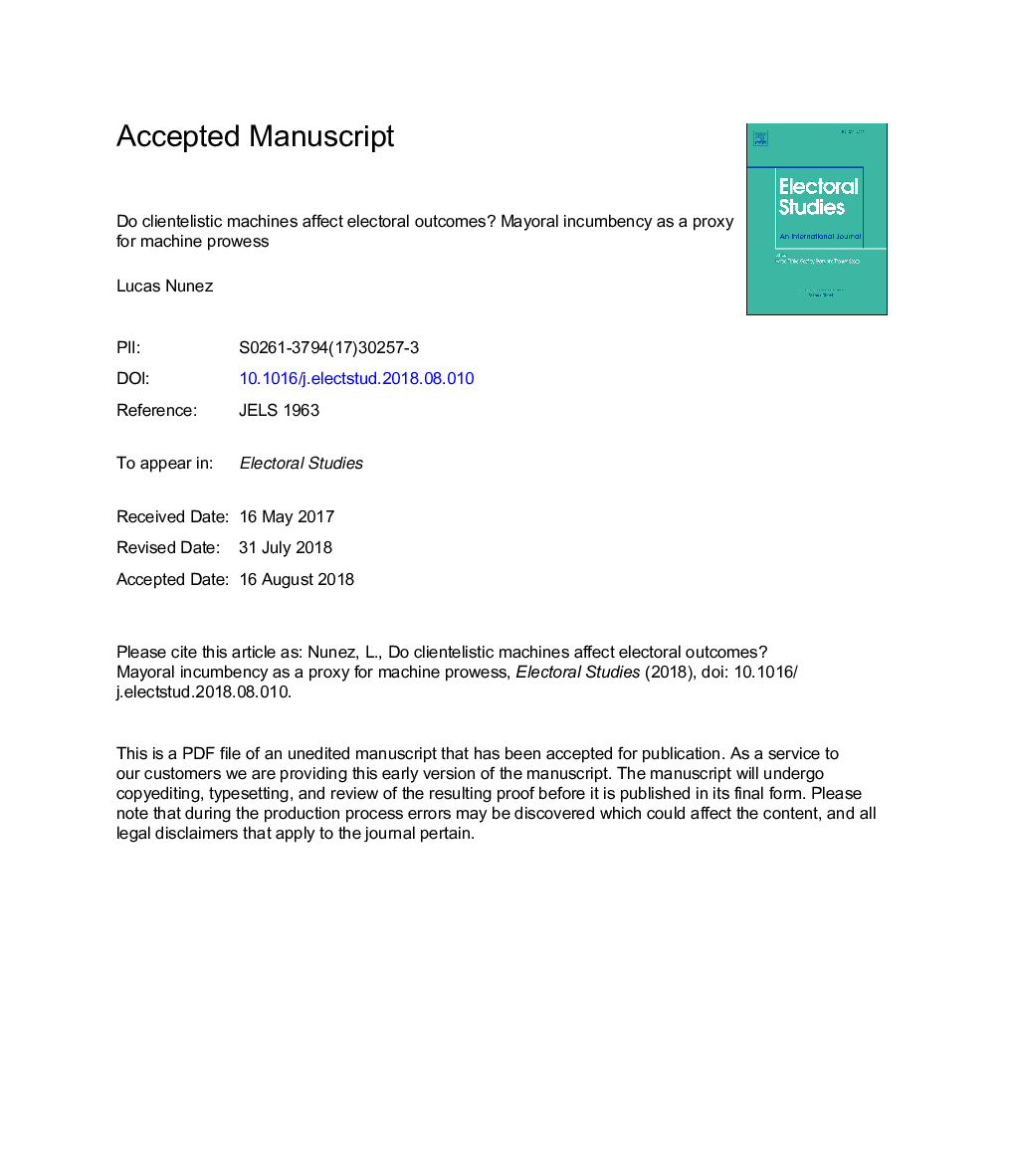| Article ID | Journal | Published Year | Pages | File Type |
|---|---|---|---|---|
| 9953222 | Electoral Studies | 2018 | 29 Pages |
Abstract
I study the aggregate electoral benefits of control of mayoral offices by a clientelist party in Buenos Aires province, Argentina. Clientelistic machines require resources to exchange them for their clients' votes. The control of mayoral offices gives clientelist parties access to resources to do this, as well as to build patronage networks. Using a regression discontinuity design, I show that the clientelist party enjoys a strong incumbency advantage in mayoral elections. However, its control of local office does not translate into an improved electoral performance for other offices, despite the incentives that the local machine faces to do so. The lack of electoral benefits for mayoral and other offices jointly suggests that the clientelist practices may have a limited impact on aggregate electoral outcomes, possibly only benefiting mayoral candidates.
Related Topics
Social Sciences and Humanities
Social Sciences
Geography, Planning and Development
Authors
Lucas Núñez,
